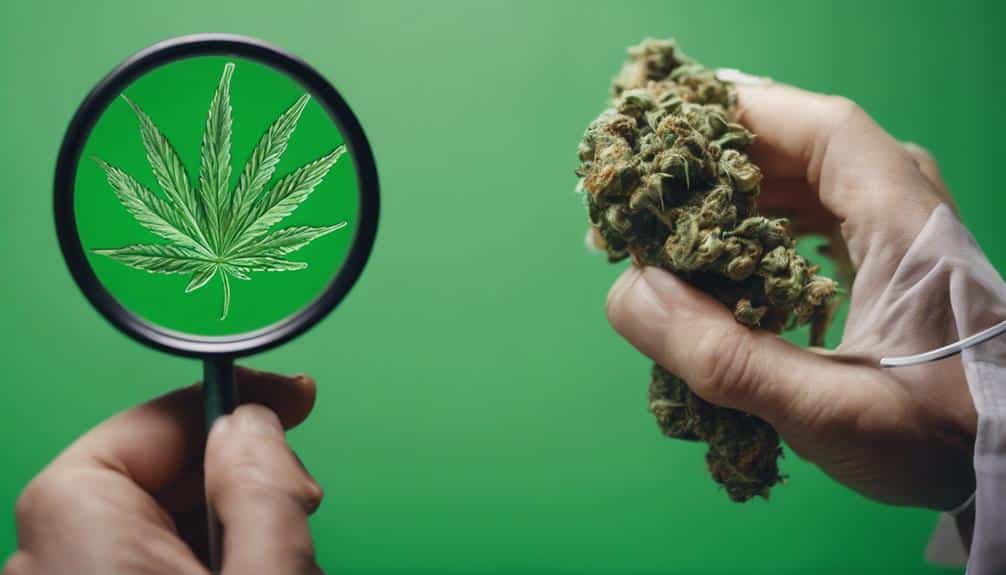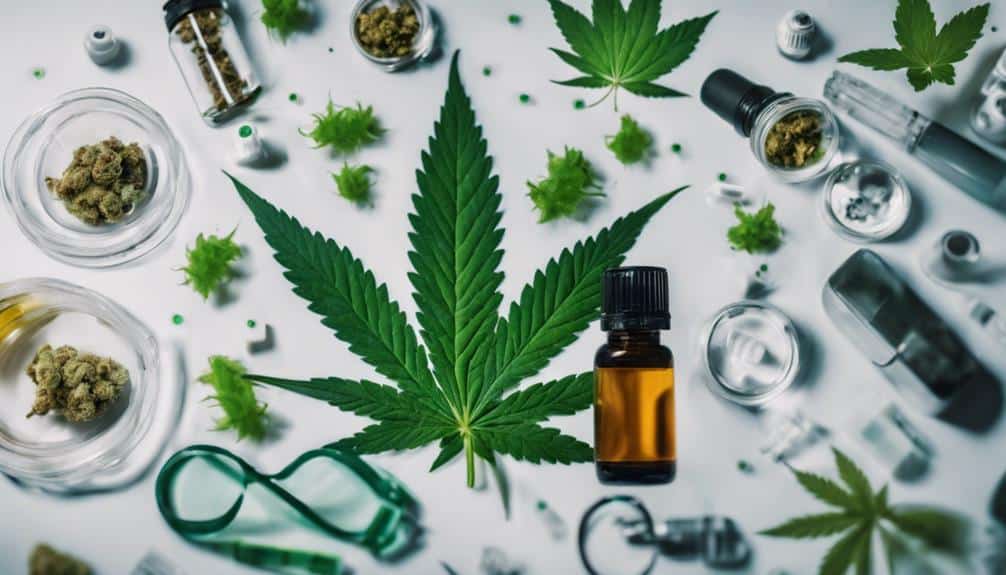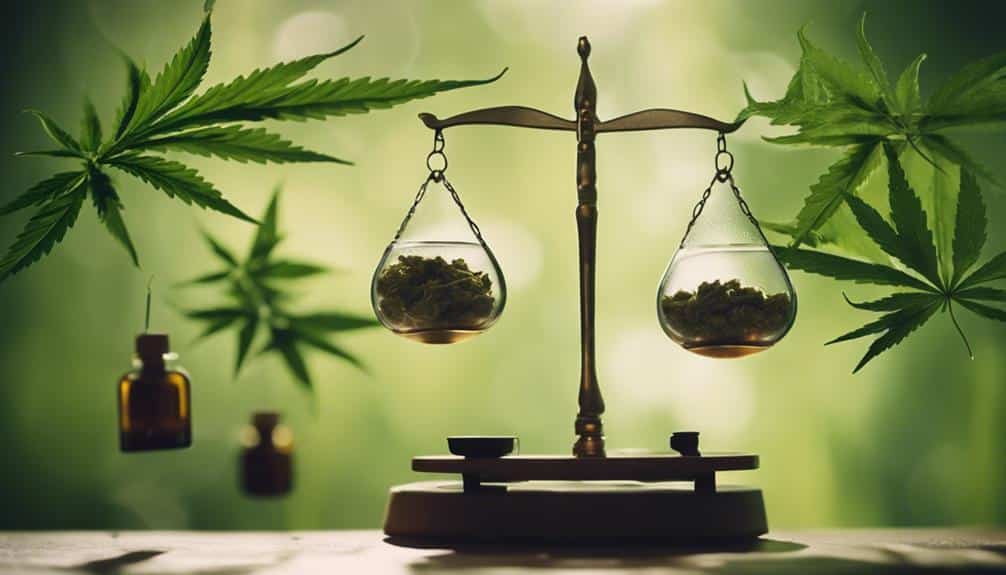You’re likely aware of the increasing acceptance of medical marijuana and its potential therapeutic benefits. But have you ever considered how it could enhance and complement non-traditional therapies? Consider acupuncture, massage, or yoga therapy integrated with medical marijuana for managing conditions like chronic pain or anxiety. As healthcare continues to evolve, it’s an intriguing time to explore how these combined approaches might revolutionize treatment plans. Interested in what this could mean for contemporary healthcare? Stick around; there’s much more to discover.
Table of Contents
Understanding Medical Marijuana

To fully understand the potential benefits and drawbacks of medical marijuana, it’s necessary to delve into its history, chemical makeup, and the various health conditions it’s purported to treat. It’s crucial to comprehend the context in which this substance has been utilized and regulated as well as the processes involved in its cultivation.
Examining Cannabis Legislation will provide significant insight into the legal standing of medical marijuana. Throughout history, legislation surrounding cannabis has fluctuated wildly reflecting societal attitudes and medical understanding at that time. These laws have greatly impacted its cultivation and usage consequently affecting patients’ access to this potential therapy.
When discussing Marijuana Cultivation, it can be a complex process. The quality of the plant as well as the specific strain plays a pivotal role in its medicinal efficacy. It is important to note that different cultivation methods can influence the plant’s chemical composition leading to variations in its therapeutic potential.
Medical Marijuana’s Therapeutic Properties
What makes medical marijuana potentially therapeutic, you may wonder? The answer lies in its complex chemical profile, specifically the presence of cannabinoids. Cannabinoid research has revealed that these compounds interact with our body’s endocannabinoid system, which regulates various physiological processes. This interaction is what gives marijuana its potential therapeutic properties.
Marijuana cultivation has played a significant role in unlocking these benefits. By selectively breeding plants with higher concentrations of certain cannabinoids, growers have been able to produce strains of marijuana with enhanced therapeutic properties. For instance, CBD, a non-psychoactive cannabinoid, is highly valued for its potential to alleviate symptoms of various health conditions.
However, it’s not just about the cannabinoids. Terpenes, another group of compounds found in marijuana also contribute to its therapeutic potential. These aromatic compounds responsible for the plant’s distinct scent are believed to have their own health benefits and work synergistically with cannabinoids enhancing their effects.
Conditions Treated With Medical Marijuana

From alleviating chronic pain to reducing the severity of seizures medical marijuana’s therapeutic properties have been harnessed to treat a wide range of health conditions. Thanks to evolving cannabis legislation more people are accessing this natural remedy bringing relief to those who’ve tried traditional treatments without success.
You might be curious about specific ailments that can be managed with medical marijuana. Chronic pain tops the list including conditions such as arthritis, fibromyalgia, and migraines. Marijuana’s anti-inflammatory properties prove beneficial here. It’s also been effective against severe forms of epilepsy where traditional medications have fallen short.
Furthermore, medical marijuana has been employed in the treatment of mental health disorders like PTSD, anxiety, and depression. The calming effects of certain marijuana varieties offer relief for these conditions.
In the realm of life-threatening diseases marijuana is used to manage the side effects of chemotherapy in cancer patients including nausea, vomiting, and loss of appetite. It’s also been helpful for those suffering from HIV/AIDS by improving appetite and reducing neuropathic pain.
Integrating Medical Marijuana Into Non-Traditional Therapies
Building on the therapeutic potential of medical marijuana it’s being incorporated into non-traditional therapies offering new avenues of treatment for patients who haven’t found relief through conventional means. As a healthcare provider you may find this approach innovative and promising in your quest to better serve your patients’ needs.
Notably changes in cannabis legislation are making it easier for providers like you to integrate medical marijuana into a therapeutic regimen. With increased patient accessibility you’re now better positioned to use this tool in your practice. This is particularly useful in cases where traditional treatment methods haven’t yielded expected results.
For instance medical marijuana has been successfully integrated into therapies such as acupuncture massage and yoga. These combined approaches can often provide more holistic relief for patients suffering from chronic pain anxiety and other conditions. As a healthcare provider it’s important to stay informed about these emerging practices as doing so can help you provide a more comprehensive personalized care plan for your patients.
Benefits and Potential Risks

As you consider integrating medical marijuana into non-traditional therapies it’s essential to understand both the potential benefits and risks associated with its use. On one hand, the benefits can be significant. Medical marijuana has shown promise in managing pain nausea and other debilitating symptoms in patients who haven’t responded to conventional treatments. It can also be a more natural less invasive alternative to traditional pharmaceuticals.
However there are also potential risks. Like any medication medical marijuana can have side effects including dizziness impaired memory and potential dependency. There’s also the question of legal implications. While the use of medical marijuana is gaining acceptance its legal status varies from place to place which can impact patient accessibility as some patients may not have access to this therapy due to legal restrictions in their area.
Shifting Perceptions in Healthcare
In the world of healthcare we’re witnessing a significant shift in perception towards medical marijuana and its integration into non-traditional therapies. This shift isn’t just about acceptance but also about stigma reduction and policy changes.
Stigma reduction is crucial. As a healthcare provider you’ve likely encountered patients who could benefit from medical marijuana but are hesitant due to societal stereotypes. Public education and open dialogue can help dispel these misconceptions allowing patients to consider this as a viable treatment option.
Policy changes are also playing a pivotal role with more states legalizing medical marijuana there’s an increased opportunity for research peer-reviewed studies and ultimately better patient care. You’re now able to consider medical marijuana as part of your therapeutic arsenal a move that would’ve been unimaginable a few decades ago.
As these shifts continue it’s vital that you stay informed and adaptable. The landscape of healthcare is ever-changing and your ability to provide effective compassionate care relies on your willingness to explore non-traditional therapies. The integration of medical marijuana is just one example of this broader evolution in healthcare.
Conclusion
As we navigate towards the future of healthcare innovation don’t let the fear of the unknown deter you. Embrace the integration of medical marijuana into non-traditional therapies. This holistic approach has the potential to dramatically reshape how we manage chronic pain and anxiety. As societal attitudes evolve and stigmas diminish we’re ushering in a new era of understanding and acceptance. Let’s seize the opportunities this journey presents together.
I’d like to personally invite you to learn more about this exciting development in healthcare. Please consider visiting us at Cannabis Docs of Delaware. Our team of experts is committed to providing all the information you need to make informed decisions about your health. We’re here to answer any questions you might have if you prefer chatting over the phone give us a call at (855) 420-6797. We’re friendly welcoming and always ready to help I look forward to hearing from you soon!

